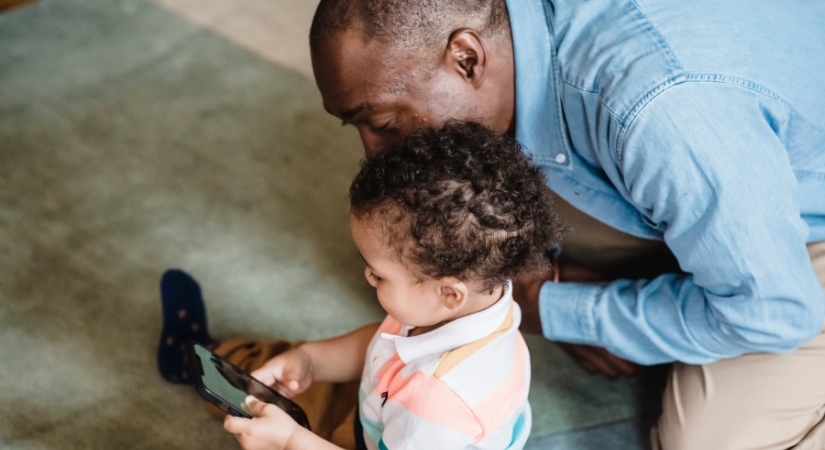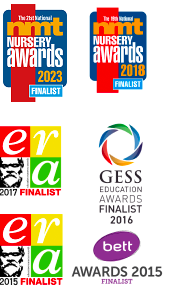The Early Years of a child’s life are incredibly formative. They shape their cognitive, social, and emotional development. In the dynamic world of Early Years Education, where young minds are nurtured and shaped, effective communication between parents and educators is nothing short of vital. The partnership between parents and early years settings lays the foundation for a child’s holistic development and sets the stage for a lifelong love of learning.
The importance of parent communication
High-quality, frequent two-way communication between parents and practitioners is a cornerstone of successful Early Years Education. It creates a supportive environment that fosters children’s growth and development. Many benefits of parent communication can be seen in an Early Years setting, some of these include:
Holistic Growth
Parents possess unique insights into their child’s interests, strengths, and challenges. By sharing this valuable information with educators, parents contribute to a more comprehensive understanding of each child’s needs. This enables educators to design tailored learning experiences that promote holistic development.
Consistency
Communicating with parents in an Early Years setting allows them to understand what their children are learning so they can support and reinforce these lessons in the home environment. For instance, if a practitioner shares that they’re focusing on developing fine motor skills through activities like cutting or threading beads onto string during class time then parents can provide similar opportunities for practice at home.
When parents and educators share a common understanding, children experience a consistent approach to learning and behaviour guidance. Such consistency contributes to children’s feelings of security and confidence, ultimately enhancing their overall learning journey.
Early Intervention
Regular communication between parents and educators facilitates early identification and intervention in the event of developmental delays or challenges. Timely collaboration empowers practitioners to implement effective strategies promptly, ensuring that each child’s needs are met with precision.
Fostering Positive Attitudes
Research has consistently shown that parental involvement positively impacts children’s academic success. Parents who actively engage in their child’s education play a significant role in cultivating a positive attitude towards learning. Children are more likely to develop a lifelong love of learning when they witness their parents valuing education and participating in their learning journey.
Promoting Parent Communication and Engagement
There are many ways to promote parent engagement and communication within an Early Years setting. It’s such a big topic that we actually included a bit about it in our blog ‘Building your online Early Years Community’ which we released earlier this year. Here are a few techniques and tools that can be used to increase parent engagement and communication within a setting.
Regular Updates
Consistently sharing updates on each child’s progress, milestones, and activities helps parents remain informed and engaged. Educators can use a variety of communication channels, such as newsletters, emails, or dedicated apps, to share pertinent information.
Digital Platforms
Embrace technology by making use of digital platforms such as parent communication apps to share updates, photos, and videos of activities within the setting. This not only keeps parents informed but also offers a glimpse into each child’s daily experiences.
This is one of the reasons we made eylog, so that practitioners can record milestones and important parts of the day on the app really quickly without adding to their admin time away from the nursery room. These can then be shared with the parent in “real-time”, keeping them directly involved in their child’s learning journey.
Parent-Practitioner Conferences
Scheduled meetings between parents and practitioners provide dedicated time to discuss each child’s development, strengths, and areas for further growth. These conversations allow for in-depth communication and collaborative goal-setting.
Collaborative Projects
Involve parents in collaborative projects or activities that include both the child and their family, and potentially even the setting. This approach fosters a sense of connection and reinforces the concept that learning extends beyond the confines of the setting.
Conclusion
Communicating with parents in an early years setting plays an integral role in shaping effective educational experiences for young learners. It builds trust between nurseries and families, promotes consistency across different environments, enhances parental involvement which directly impacts children’s academic success, and provides insights into each child’s unique needs allowing tailored teaching approaches, all while fostering a collaborative community centred around supporting each child’s developmental journey.
In today’s challenging environment, these relationships are invaluable for the child’s development and also the continued growth and success of your setting.
So let’s remember – while our nursery may be filled with small chairs for our young people – let’s also make room for those who hold these little hands outside our doors: our invaluable partners – the Parents!

